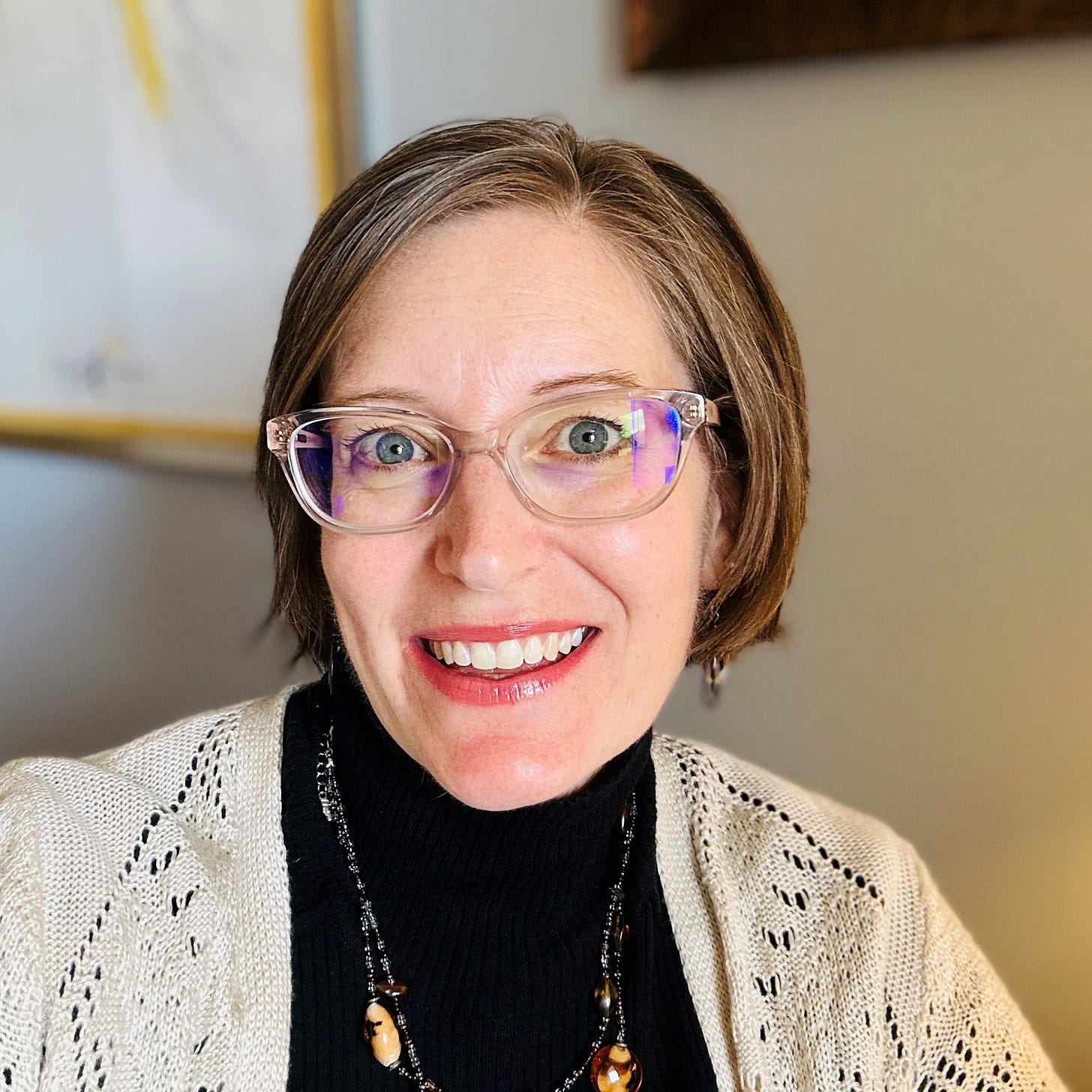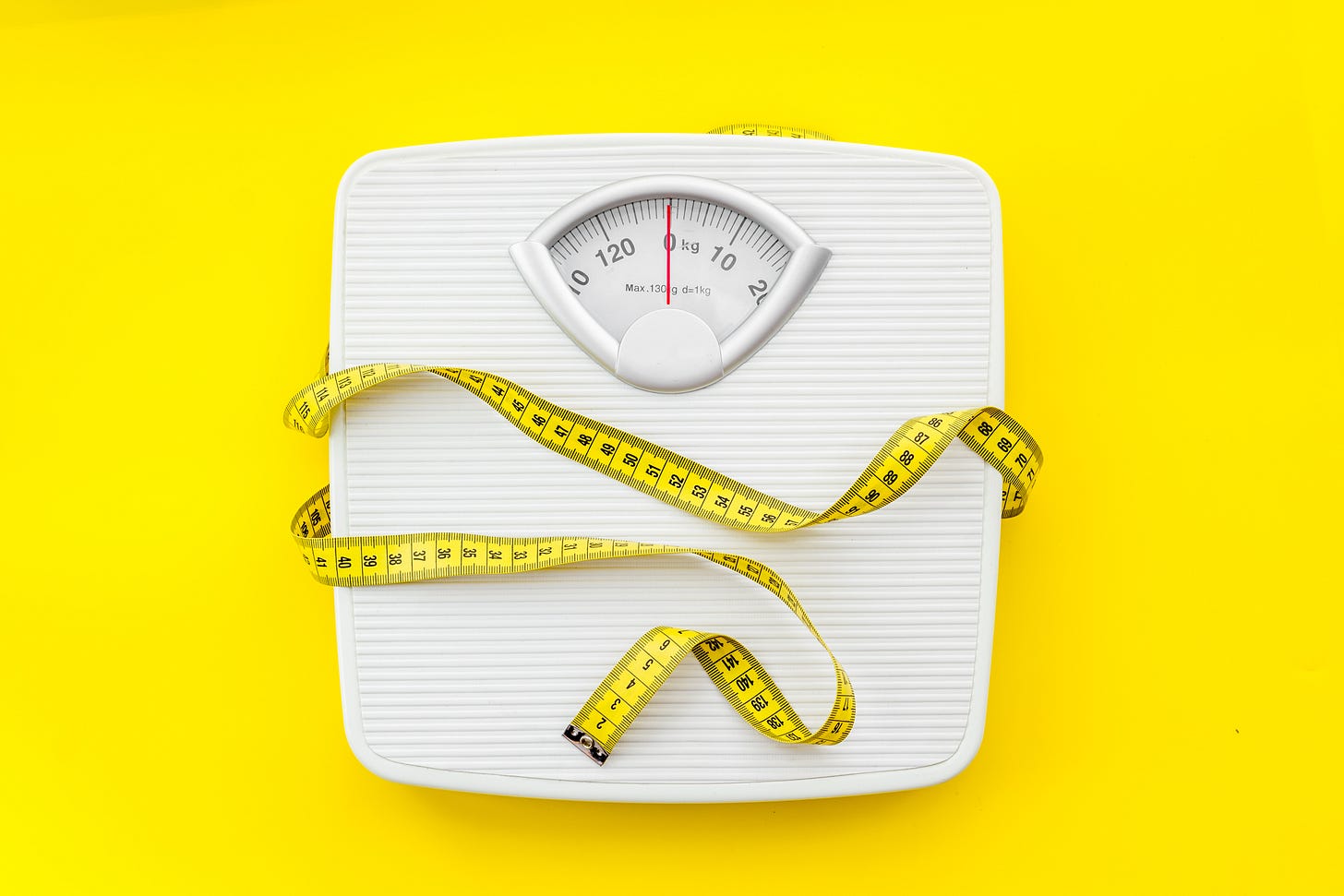Welcome to all subscribers — new and old! Hope you had a peaceful holiday and the return to work was not too awful. As the promise of the new year dawns, most of us tend to reflect on changes we want to make in the new year. For many of us, that includes plans to become “more healthy.”
I recently had a patient tell me that she planned to increase her intake of fruits and vegetables after her cancer diagnosis…in fact, she would make it her New Year’s Resolution. The problem was she didn’t think she would be able to afford so much produce.
“What do you think about these?” she asked, pulling a bottle of green capsules from her bag.
I had no idea. So, I did what I usually do when people ask questions like this and directed her to Julie Lanford aka The Cancer Dietitian.
Julie is my go-to for questions like will eating sugar feed my cancer or what’s the deal with GMOs. Julie is the best at distilling what we know for sure and what the current evidence doesn’t support. I knew she would have the answers for my patient about the utility of powdered produce.
So, it is a great honor to have Julie posting here today. Julie is a board-certified specialist in oncology nutrition. She has been a featured speaker at Stupid Cancer, Conquer Cancer and Living Beyond Breast Cancer. I’m super excited to have her discussing this important topic. I look forward to your comments.
Our culture is full of nutrition folklore. Which makes it extremely hard to tell the difference between an urban legend, a myth, a theory, an educated guess, or a science-based recommendation.
Here’s a tip from your friendly, board-certified cancer dietitian: Most of what you read or hear about nutrition is at best a theory and at worst, a myth.
As
said in a recent post on The Vagenda:The idea that understudied or unstudied therapies should not face the same level of evaluation because they fit a marketer's definition of “natural” or “ancient” doesn’t work with me. Too often, people let this slide…because of the gaps in data, but filling gaps with under-studied and unstudied therapies is exploitation, not medical care. If you want to fill the gaps, you should do quality studies.
So why do we follow diet trends?
In general, our culture reinforces the belief that we are smart enough to figure things out for ourselves. We also tend to believe that through our choices, we can exercise control over our health. Companies also see an opportunity to profit from perpetuating these beliefs by selling us products that promise to “support your body” or “improve overall health.”
All that sounds like a good thing, right? Well, not so fast.
The truth is that our bodies are complex, and our health is not just a function of our own choices, but also a result of the society/place we live. We can’t all be experts in everything, so we need to rely on others who are trained to give advice on that topic.
In terms of being in control of our cancer risk, we all know people who did everything right in their lifestyle and still faced a cancer diagnosis. And we all know people who have done all the “wrong” things and never get a cancer diagnosis.
Realistically, our personal choices do make a difference, but it’s probably in the range of 30-40%. Our chance of developing cancer is not definitively controlled by what we consume or how much we weigh.
So, what do we know for sure about diet and cancer?
Nutrition is a science based on the study of the human body. Therefore, it is a fluid scientific learning environment, but there are some key things we know for sure about diet and cancer.
Being malnourished negatively influences cancer outcomes. The most important thing someone can do during treatment is to make sure they get adequate calories (energy) and protein, and to move their body as much as is reasonable to maintain lean body mass.
There is consistent evidence that eating a diet that is mostly plants, and not too processed, is associated with lower cancer risk and better overall health. NOTE: This does not require 100% plants! We have great evidence for positive health when you’re consistently consuming between 60 – 75% plants that are in a form that’s close to how they were grown (i.e. not super processed).
Consuming too much of the following foods has been definitively shown to increase cancer risk: alcohol, refined/simple sugars, processed meats, and red meat.
Now for what you think you know that is probably wrong. Dr. Wentworth busted several of the common cancer nutrition myths in a previous post. Today, I want to challenge the 4 biggest assumptions we make about nutrition and health. I find these are also commonly linked to cancer in a variety of confusing ways.
False Assumption #1:
BMI and body weight are important predictors of health status.
BMI (body mass index) and weight are very complicated to interpret. They can be useful as a part of our overall health picture, but no one can tell an individual patient what their “ideal weight” is. That’s not a magic ball kind of answer that we are privy to.
In many cases, focusing on weight and BMI is fraught with emotional complications, regrets and can promote disordered eating and unhealthy weight fluctuations. I don’t recommend referring to weight as something to “work on” because for most of us, weight is not something we can control.
What we can control is how we move our bodies, how we fuel our bodies and how we honor the amazing things our bodies do for us each day. Let’s STOP advising people to lose weight!
False Assumption #2:
There are specific foods, or specific nutrients, which cause cancer growth and other foods that can help shrink cancer.
The way that food is processed by our digestive system, and nutrients delivered around our bodies, is a complicated and amazing task! Foods are broken down into individual pieces, some of which are absorbed into the body and utilized by our cells, and some of which are passed through the GI system. There are many different foods that can provide our bodies with the nutrients they need to function.
Therefore, there is not one absolute way that everyone must eat. Some may choose vegan or vegetarian. Some may choose mediterranean or “anti-inflammatory”. The foods we do or don’t eat aren’t that important. The overall dietary pattern (eating plenty of fiber, healthy fats, protein, and energy) is more important than any certain foods. Eating a balanced diet is the key to good health.
False Assumption #3:
If you can’t pronounce an ingredient, you shouldn’t eat it. And it probably causes cancer.
This idea is insulting to our intelligence and to the complex and reliable food system!
First, everything (and I do mean EVERYTHING) has a chemical name:
Ascorbic acid is vitamin C.
Dihydrogen oxide is water.
Thiamine is a B vitamin.
Phytonutrients (for example: isothiocyanates) are good for you but their names are extremely hard to pronounce!
On top of actual foods having chemical names, many preservatives and additives are perfectly safe and serve an important function to keep food available and shelf stable so that we can all have an affordable, abundant food supply.
False Assumption #4:
“Good health” should be our number one priority.
This might sound wacky coming from a healthcare provider, but here’s the thing –There’s no gold star for the person with the best health. Good health on its own doesn’t necessarily give you anything except possibly more time on earth.
The question is WHY do you want more time? And WHY are you seeking good health? Living longer in itself does not bring joy, unless you have a good quality of life with that extra time.
I think most of us can agree that we’d rather have a better quality of life, rather than longer life that wasn’t enjoyable. Therefore, by following drastic diets or avoiding foods that we love in order to pursue “good health,” we are actually working against the very thing we want more of — quality time.
Not consuming adequate calories (energy) or protein can result in fatigue and muscle loss. Following a diet that requires the purchase of expensive foods and supplements can cause financial strain on a household. Our lifestyle should be helping us reach our life goals.
Once again, defining the goals we are trying to achieve is important. We can then use our nutrition plan to accomplish those goals.
So what if instead of centering your food choices in 2024 around “good health” or “cancer risk,” you made a nutrition plan around your life goals:
Possibly you want more energy to spend quality time with friends.
Maybe you want to have more fun and less stress.
Or to improve your cooking skills by hosting family dinners.
Whatever gives your life meaning is what you want your nutrition strategy to support.
I encourage you to write down those dreams, big and small, and build the lifestyle (including a balanced nutrition plan) that supports them.
Eat Well & Get on with Living!
: - ) Julie
You can find out more about Julie including signing up for her newsletter, attend a cooking event or listen to one of her podcasts at www.cancerdietitian.com.













Can you imagine if all scientists were more truthful about the accuracy of the data?